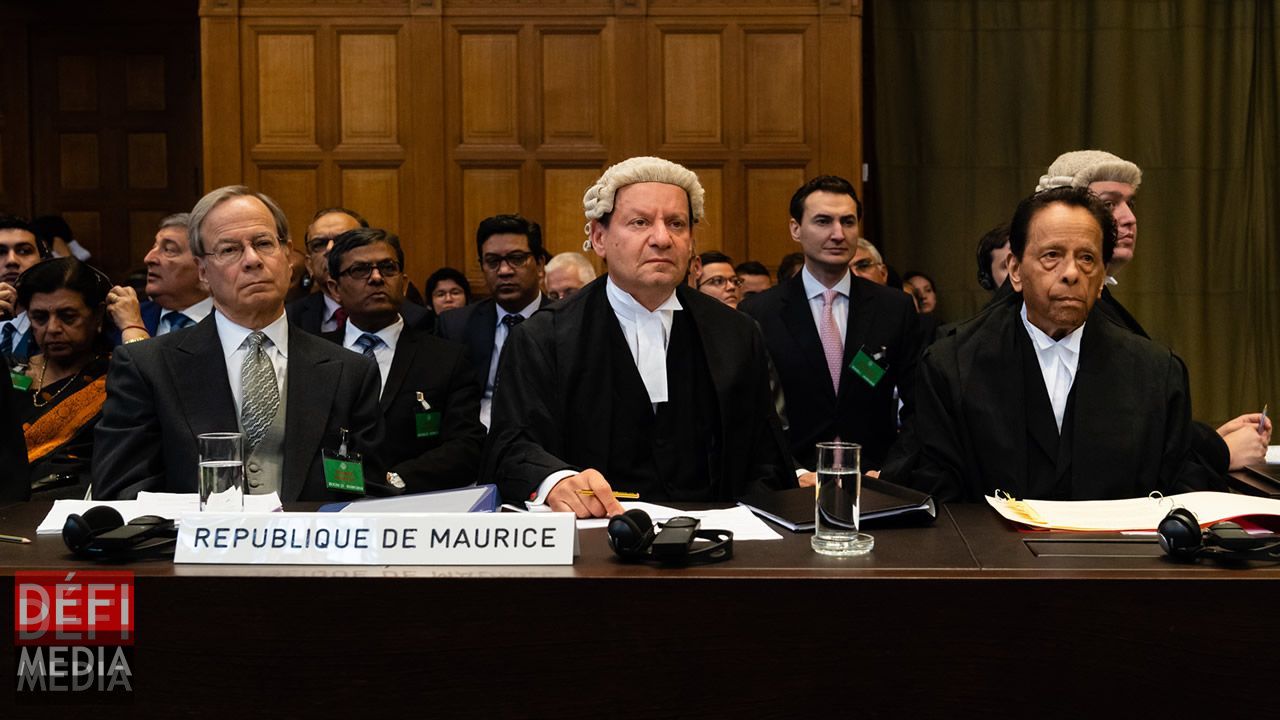
Le gouvernement mauricien se dit profondément déçu de la position prise par le Royaume-Uni sur le dossier Chagos après une déclaration faite ce mardi 30 avril par Sir Alan Duncan, ministre d'État pour l'Europe et les Amériques devant le parlement britannique. Le Bureau du Premier ministre [PMO], dans un communiqué émis ce mardi soir, affirme qu'en réitérant sa position selon laquelle il n'a aucun doute sur sa souveraineté sur les Chagos, le Royaume-Uni est en train d'agir en violation flagrante des conclusions de la Cour Internationale de Justice. Celle-ci ayant rendu une «advisory opinion» favorable à Maurice le 25 février dernier en estimant que l’excision des Chagos du territoire de Maurice s’est faite de manière illicite. Cette instance avait aussi enjoint le Royaume-Uni de se retirer de l’administration de l’archipel dans les plus brefs délais.
Le PMO affirme que l'acte du Royaume-Uni, à la lumière de la déclaration faite ce mardi par Sir Alan Duncan, constitue «un affront pour le 'rule of law', le continent africain et les Nations Unies».
Le PMO, dans son communiqué, ajoute que le gouvernement mauricien n'épargnera aucun effort pour compléter le processus de décolonisation de Maurice. Par conséquent, Maurice, ensemble avec d'autres pays, déposera une «draft resolution» devant l'Assemblée nationale des Nations Unies pour réclamer la mise en exécution de l'Advisory Opinion de la Cour internationale de Justice sur les Chagos.
Ci-dessous le communiqué du PMO :
COMMUNIQUE
The Government of Mauritius has taken note of the statement made to the UK Parliament on 30 April 2019 by Sir Alan Duncan, Minister of State for Europe and the Americas of the UK, concerning the Advisory Opinion which the International Court of Justice (ICJ) rendered on 25 February 2019 on the legal consequences of the separation of the Chagos Archipelago from Mauritius in 1965.
The Government of Mauritius strongly values the close relations between Mauritius and the UK which are based on historical ties, and looks forward to their further consolidation.
The Government of Mauritius is, however, deeply disappointed at the stand taken by the UK following the Advisory Opinion of the ICJ, despite its professed commitment to respect for the international rule of law, the ICJ, and respect for fundamental human rights.
Emanating from the principal judicial organ of the United Nations, the Opinion of the ICJ is an authoritative statement of the law applicable to the conduct of the UK. It finds that the UK is an unlawful coloniser of the territory of Mauritius, having illegally excised the Chagos Archipelago from the territory of Mauritius prior to its independence.
The ICJ rejected the UK’s argument that the matter before it was a bilateral dispute. Its Advisory Opinion relates to the decolonisation of Mauritius and was requested by the UN General Assembly in the fulfilment of its responsibilities as regards decolonisation.
The ICJ decided unanimously that it had jurisdiction to answer the two questions which were put to it by the General Assembly and that the request had been made in accordance with the UN Charter and that the two questions submitted to it are legal in character. The ICJ went on to hold by a majority of 12-2 that it ought to exercise its discretion to answer those questions.
On the substance, the ICJ ruled on the basis of customary international law. It concluded inter alia by an overwhelming majority of 13-1 that:
(a) the process of decolonisation of Mauritius was not lawfully completed upon its accession to independence in 1968 in view of the unlawful excision of the Chagos Archipelago from the territory of Mauritius;
(b) the UK is under an obligation to bring to an end its administration of the Chagos Archipelago as rapidly as possible;
(c) all Member States are under an obligation to cooperate with the United Nations in order to complete the decolonisation of Mauritius.
Not a single judge voted in favour of the UK on the merits.
In reiterating its position that it has “no doubt about [its] sovereignty over the Chagos Archipelago”, the UK acts in flagrant disregard of the aforementioned conclusions of the ICJ. Its action is an affront to the rule of law, to the African continent, and to the United Nations. The ICJ has clearly stated that the Chagos Archipelago is an integral part of the territory of the Republic of Mauritius and that is a legal situation that cannot be questioned or doubted under the rules and principles of international law. It is therefore undeniable that the Republic of Mauritius is the sole State lawfully entitled to exercise sovereignty and sovereign rights in relation to the Chagos Archipelago and its maritime zones. The UK cannot and does not have sovereignty over the Chagos Archipelago.
It is of the utmost importance for respect of international law and human rights that the findings of the ICJ be promptly implemented by the UK. Disregard for the assertions by the ICJ would be tantamount to a dangerous precedence that can result in the total breakdown of international institutions that stand in support of peace and security in the world.
The UK’s stand will prevent the resettlement of Mauritians, particularly those of Chagossian origin, in the Chagos Archipelago, thereby perpetuating a historically wrongful act vis-à-vis the forcibly evicted inhabitants of those islands.
The Government of Mauritius considers that the UK’s claim in regard to defence and security is completely misplaced. It notes that in his appearance before the International Court of Justice, during the hearings, the UK Solicitor General made no reference to this matter. The UK did not argue that the principle of self-determination could ever be displaced by security considerations. Moreover, the Government of Mauritius has confirmed on various occasions to the UK and the US that it fully recognizes the military base in Diego Garcia and will take no action that would impede its continued operation. This position, which was reiterated by Mauritius at the UN General Assembly and before the ICJ, remains unchanged. The UK, on the other hand, did not ask the ICJ to give any consideration to the issue of defence and security.
The Prime Minister of Mauritius met the British Prime Minister on 18 March 2019 in London, and reassured her that Mauritius had no problem with the continued operation of the base in Diego Garcia.
The Prime Minister of Mauritius subsequently wrote to the British Prime Minister and the US President to reconfirm to them that Mauritius is prepared to enter into a long-term lease agreement with the US, or with the US and the UK, in respect of Diego Garcia, with the possibility of renewing the agreement for an extended period of time.
In view of the assurances provided by the Government of Mauritius, the position taken by the UK that UK’s sovereignty over the Chagos Archipelago is essential for the continued operation of the military base in Diego Garcia is untenable.
The Government of Mauritius will spare no efforts to complete the decolonisation process of Mauritius. In this regard, Mauritius, together with other countries, will be tabling shortly before the UN General Assembly a draft resolution for the implementation of the Advisory Opinion.
Prime Minister’s Office
30 April 2019

Notre service WhatsApp. Vous êtes témoins d`un événement d`actualité ou d`une scène insolite? Envoyez-nous vos photos ou vidéos sur le 5 259 82 00 !
















![[À lire dans Le Défi Plus] Les whistleblowers Gooljaury et Bhuglow lève le voile sur le mystère «Missier Moustass»](https://defimedia.info/sites/default/files/styles/square_thumbnail/public/quatre_4.jpg?itok=gHbGdAl_)




![[Micro-trottoir] Comment la suspension des réseaux sociaux affecte les Mauriciens](https://defimedia.info/sites/default/files/styles/square_thumbnail/public/untitled_design_2_115.jpg?itok=0dh0Oysp)